4 Important Factors in EHR Software Adoption
EHR software adoption among U.S. health care providers continues to increase at a rapid pace. Recent data on EHR adoption rates, published in the online journal, Health Affairs, indicates 48 percent of office-based physicians adopted an EHR system with advanced functionalities, nearly double the rate seen in 2009. With regards to hospitals, 59 percent had adopted an EHR system with advanced functionalities, quadrupling the rate found in 2010. From this data, one can identify a number of drivers for adoption that will likely shape the market in the near future.
1. Compliance and Incentive Eligibility
In the EHR world, government regulations provide the motivational carrot and stick for the majority of the market. The Medicare and Medicaid EHR Incentive Programs offer incentive payments to encourage providers to adopt, implement, upgrade or demonstrate meaningful use of EHR. These regulations penalize providers who do not adopt and successfully demonstrate meaningful use of the technology (with stage 3 of these regulations just being announced by the ONC).
EHR users have responded accordingly. Survey data from the ONC shows 62% of physicians reported that financial incentives or penalties were major influences on their decision to adopt an EHR compared to those who adopted prior to 2009.
2. Technical Assistance
Like other enterprise technologies, usability looms large over the decision to adopt. Medical professionals have shown an aversion to overly technical and fussy EHR platforms, given the obvious conclusion that medical providers should focus on treating sick patients and not learning the nuances of an overly technical EHR system.
Like other enterprise technologies, usability looms large over the decision to adopt.
The amount of technical assistance and usability a platform offers factors significantly in EHR software adoption. ONC data shows 46 percent of physicians who had not adopted an EHR reported that access to technical assistance around EHR implementation would be a major influence in their decision to adopt.
3. Interoperability
The ability to exchange data across settings remains the key to the future of modern data-driven medicine. Given the fact that providers may merge with larger systems or aspire to share data with outside members of a care team, the need for seamless exchange of data is vital. This need also emerges among physicians surveyed regarding the decision to adopt EHR. 36% of respondents identified the ability to exchange health information electronically with other providers as a primary motivation for EHR software adoption.
4. Population Health Management
Often dubbed the “next great frontier” in healthcare information technology, population health management (PHM) focuses on keeping a patient population healthy, thereby reducing the need for expensive interventions. According to an Institute for Health Technology Transformation report, PHM reduces medical risk and, by association, medical cost.
The report describes PHM as focusing “partly on the high-risk patients who generate the majority of health costs, it systematically addresses the preventive and chronic care needs of every patient. Because the distribution of health risks changes over time, the objective is to modify the factors that make people sick or exacerbate their illnesses.”
An advanced EHR platform provides the foundation for a provider to implement PHM and ultimately reduce costs and risk. With this goal in mind, many forward thinking users are adopting EHR with the expectation of incorporating PHM’s risk and cost reduction benefits.
Free white paper
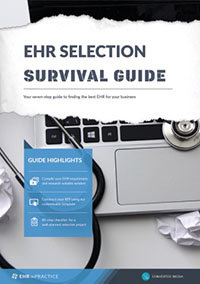
EHR Selection Survival Guide
The comprehensive guide to selecting the best EHR system for your medical practice.
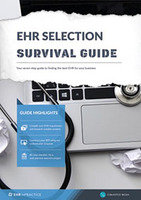
Featured white papers
-
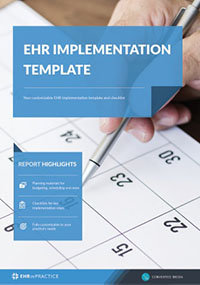
EHR Implementation Template
Get all the planning tools you need to make your EHR implementation a success
Download -
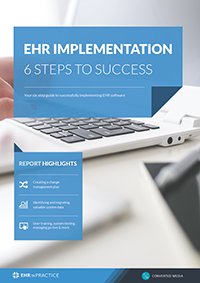
EHR implementation: 6 steps to success
Step-by-step information on how to implement EHR effectively
Download -
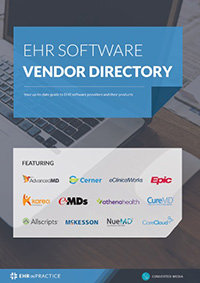
EHR Vendor Directory
Get the most up-to-date directory of EHR software vendors. Find the best software for your practice.
Download
Related articles
-

EHR Implementation Plan: Your 8-Step Checklist
Your comprehensive checklist for creating an EHR implementation plan.
-

A template for your EHR project implementation timeline
Determining your EHR project timeline will prove tricky, but having some expectations of time fra...
-

5 important areas of EHR training during implementation
Successful EHR implementation is not possible without crucial EHR training

